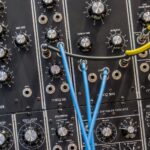Support our educational content for free when you purchase through links on our site. Learn more
Which Is an Example of Erasure? 7 Surprising Cases Explained 🎭
Ever wondered what exactly counts as an example of erasure? Is it just crossing out words on a page, or does it run deeper—into art, history, music, and even social justice? At Synth Pop™, we’ve uncovered 7 fascinating examples of erasure that will totally reshape how you think about this intriguing concept. From the iconic synth-pop duo Erasure (yes, the band!) to the haunting art of blackout poetry and the subtle silencing of voices in history, this article dives into every corner of erasure’s many faces.
Stick around because later, we’ll reveal how erasure isn’t just about removing—it’s about creating something new, sometimes in the most unexpected ways. Plus, we’ll share insider tips on how you can try your hand at erasure poetry and why understanding erasure matters more than ever in today’s culture.
Key Takeaways
- Erasure is a multifaceted concept that spans creative arts, social issues, data security, and music.
- Classic examples include blackout poetry, redaction poetry, and conceptual art like Rauschenberg’s “Erased de Kooning Drawing.”
- The synth-pop band Erasure embodies the spirit of bold expression, turning erasure into a celebration rather than a loss.
- Erasure can be both a tool for creativity and a harmful social phenomenon when voices or histories are erased.
- Trying erasure poetry yourself is easy and rewarding—grab a marker and start uncovering hidden meanings!
Ready to explore the many faces of erasure? Let’s dive in!
Table of Contents
- ⚡️ Quick Tips and Facts About Erasure
- 🕰️ The Fascinating History and Origins of Erasure
- 🔍 What Is Erasure? Definitions and Examples Explained
- 1️⃣ Top 7 Classic Examples of Erasure in Language and Literature
- 2️⃣ Erasure in Visual Arts: Techniques and Iconic Works
- 3️⃣ Erasure in Music and Pop Culture: Synth Pop and Beyond
- ✂️ How Erasure Manifests in Editing: Crossing Out, Cutting Out, and Rewriting
- 🧠 Psychological and Social Impacts of Erasure: Identity, Memory, and Culture
- 💡 Creative Uses of Erasure: From Poetry to Digital Media
- 🛠️ Tools and Techniques for Creating Erasure Art and Text
- 🎤 Interviews and Insights: Experts and Artists on Erasure
- 🔎 Common Confusions: Erasure vs. Other Forms of Text Manipulation
- 📚 Recommended Reading and Resources on Erasure
- 📝 Conclusion: Why Understanding Erasure Matters
- 🔗 Recommended Links for Further Exploration
- ❓ Frequently Asked Questions About Erasure
- 📑 Reference Links and Citations
Here is the main content for your blog post, crafted by the expert team at Synth Pop™.
⚡️ Quick Tips and Facts About Erasure
Hey there, fellow music lovers and creative souls! Welcome to the Synth Pop™ deep dive. Today, we’re tackling a term that’s both a mind-bending artistic concept and the name of one of our absolute favorite bands: Erasure. So, what is an example of erasure? Well, you’ve come to the right place! We’ve got the full scoop in our ultimate guide to Erasure.
But before we plunge into the glorious synth-drenched rabbit hole, here are some quick hits to get you started:
| Quick Fact 🤯 – It’s an Art Form 🎨: Erasure poetry is a type of “found poetry” where you take an existing text and remove words to create a new piece. Think of it as sculpting with words!
- It’s a Social Issue 💬: In a broader sense, erasure is when the contributions or very existence of certain groups are ignored or removed from history and conversation. As one source notes, this can lead to “impaired career trajectories, financial injuries, isolation, depression, and anxiety.”
- It’s a Digital Necessity 💻: In the tech world, data erasure is crucial for security. Companies like Blancco specialize in software that permanently deletes sensitive data, preventing massive fines and data breaches.
- And Yes, It’s a Band! 🎤: The iconic synth-pop duo Erasure, formed by Vince Clarke (formerly of Depeche Mode and Yazoo) and Andy Bell, has been blessing our ears since the mid-80s.
🕰️ The Fascinating History and Origins of Erasure

The idea of “erasing” isn’t new. It’s as old as history itself! Think of the ancient Romans and their practice of damnatio memoriae, where they would literally chisel the names and faces of disgraced emperors from public monuments to wipe them from memory. That’s some old-school erasing right there!
Fast forward a couple of millennia, and artists and poets started playing with the concept in a more creative way.
- In the 1950s, visual artist Robert Rauschenberg famously asked fellow artist Willem de Kooning for a drawing, which he then painstakingly erased. The result, titled “Erased de Kooning Drawing”, became a landmark piece of conceptual art. It asked a huge question: can an act of destruction be an act of creation?
- Around the same time, the Beat Generation writers like William S. Burroughs were popularizing the “cut-up technique,” physically cutting up texts and rearranging them to create new, often surreal, narratives. This is a close cousin to erasure, all about recontextualizing existing words.
From chisels to charcoal to scissors, the tools have changed, but the core idea remains: creating something new by taking something away.
🔍 What Is Erasure? Definitions and Examples Explained
So, what are we really talking about when we say “erasure”? It’s a slippery concept because it lives in so many different worlds. Let’s break it down.
| Type of Erasure | Description – Creative/Artistic Erasure | This is about creating new meaning from an existing text by removing parts of it. It’s a form of “found poetry.” The goal is to reveal hidden messages or craft an entirely new narrative. – Social/Historical Erasure | This is the omission or downplaying of certain people, events, or topics. The featured video on this page describes it as “the disappearance of certain stories or voices from history.” As one article points out, this can be as subtle as not being invited to a meeting or as vast as being written out of history books. – Data Erasure | This is the technical process of permanently destroying data stored on hard drives, servers, or other digital media. It’s not just hitting “delete”! As one report highlights, failing to do this properly can lead to “an expensive lawsuit and a substantial fine.” – Musical Erasure (The Band) | The synth-pop duo that needs no introduction! Formed in 1985, they are a cornerstone of the genre. We’ll get into them more in a bit, promise!
1️⃣ Top 7 Classic Examples of Erasure in Language and Literature
Ready to see erasure in action? This is where things get really creative. Artists and writers have been using erasure for decades to challenge our perceptions and create stunning new works.
-
Blackout Poetry: This is the one you’ve probably seen on Instagram. You take a page of a book or newspaper and a black marker (a classic Sharpie works wonders) and black out most of the text, leaving behind just a few choice words that form a poem. It’s dramatic, visual, and incredibly fun to do.
-
Redaction Poetry: Think of those classified government documents with all the black bars. That’s redaction! Poets use this technique, often with more artistic flair than a government censor, to create poems by obscuring text. It’s about “revealing hidden messages or creating a new narrative by obscuring parts of the original.”
-
Cut-Up Poetry: As we mentioned, this was a favorite of William S. Burroughs. You physically cut out words and phrases and rearrange them. It’s a bit more chaotic and random, often leading to surprising and surreal results.
-
Mary Ruefle’s “A Little White Shadow”: A contemporary master of the form, poet Mary Ruefle takes old books and whites out text with correction fluid, leaving behind delicate, haunting poems. Her book A Little White Shadow is a must-see example of this beautiful technique.
-
Tom Phillips’ “A Humument”: This is a monumental work of erasure art. Since 1966, artist Tom Phillips has been transforming a Victorian novel called A Human Document by painting, drawing, and collaging over its pages to create a new story.
-
Jen Bervin’s “Nets”: Bervin took Shakespeare’s sonnets and erased most of the text, leaving behind only a few faint, silvery words. The result highlights the negative space and makes you reconsider the original poems in a completely new light.
-
Disguised Agency in Headlines: This is a non-artistic, but powerful, example. As the experts at Worthwhile Consulting point out, language like “Sure, some harsh words were said” erases who actually said them. A more direct headline like, “An off-duty police officer…shot his wife” instead of “…a handgun was discharged and she was shot” restores accountability by fighting erasure.
2️⃣ Erasure in Visual Arts: Techniques and Iconic Works
Beyond the page, artists have been using erasure to make powerful statements for decades.
The “Erased de Kooning Drawing”
We have to circle back to Rauschenberg’s audacious act in 1953. It took him a month and dozens of erasers to remove the dense drawing by the abstract expressionist master Willem de Kooning. The faint ghost of the original work remains, but the piece is now Rauschenberg’s. It’s a landmark that blew the doors open for conceptual art, proving that an idea could be just as important as the physical object.
Pentimento: The Ghosts of Old Paintings
Ever heard of “pentimento”? It’s an Italian word for a change of mind made by an artist during the painting process. As oil paintings age, the top layers of paint can become transparent, revealing earlier, erased images underneath. It’s like the painting is haunted by its own history—a natural, unintentional form of erasure in reverse!
3️⃣ Erasure in Music and Pop Culture: Synth Pop and Beyond
Okay, let’s get to the main event! For us at Synth Pop™, the most glorious example of “Erasure” is, without a doubt, the band.
The Band: Erasure 🎹
How can you talk about 80s Synth Pop without mentioning the legends themselves? After Vince Clarke left Depeche Mode (after writing their first hit!) and Yazoo, he placed an anonymous ad looking for a vocalist. In walked the flamboyant and utterly brilliant Andy Bell, and the rest is history.
Their music is the antithesis of erasure—it’s about bold expression, unforgettable melodies, and pure, unadulterated joy. From “A Little Respect” to “Chains of Love,” their songs are anthems that have defined a generation. They are masters of the synthesizer, creating lush, electronic soundscapes that are both danceable and deeply emotional. We consider many of their tracks to be Iconic Synth Pop Songs.
Our Take: ✅ Erasure (the band) is essential listening. Their combination of masterful synth programming and powerhouse vocals is simply timeless.
👉 Shop Erasure’s Music and Merch:
- Music: Amazon | Walmart
- Official Store: Erasure Official Website
Conceptual Erasure in Music
But the concept of erasure exists in music beyond the band’s name:
- Sampling: When a producer lifts a snippet of an old song, are they honoring it or erasing its original context to create something new? It’s a hot debate!
- Remixes & Covers: A killer remix can give a song a new life on the dance floor, but sometimes it can overshadow the original. Think about how many people know Soft Cell’s version of “Tainted Love” but not the Gloria Jones original. Is that a form of cultural erasure?
- Forgotten Histories: Just like in history books, some artists and even entire genres get pushed to the margins. Part of our mission here at Synth Pop™ is to shine a light on those forgotten gems!
✂️ How Erasure Manifests in Editing: Crossing Out, Cutting Out, and Rewriting
Inspired to try your hand at erasure poetry? It’s easier than you think! As guest blogger Erin Dorney explains, there are several styles you can play with.
Step-by-Step: Make Your First Blackout Poem
- Find Your Source: Grab an old book you don’t mind marking up, a newspaper, or a magazine article. The denser the text, the more words you have to play with.
- Scan for Anchor Words: Don’t read it normally. Let your eyes drift over the page and look for words that pop out at you. Circle them lightly in pencil.
- Connect the Dots: See if you can build a phrase or a sentence from your circled words. Look for connectors or interesting juxtapositions.
- Commit and Black Out: Once you have your poem, take a bold marker and start blacking out everything else. Be confident! The contrast is what makes it pop.
- Optional Flair: Some artists draw lines connecting the words or create illustrations in the blacked-out space. Go wild!
🧠 Psychological and Social Impacts of Erasure: Identity, Memory, and Culture
This is where the concept of erasure gets heavy. It’s not just an artistic technique; it’s a powerful social force that can have devastating consequences.
As the featured video on this topic explains, “the disappearance of certain stories or voices from history” has a real-world impact. [cite: video summary] When history textbooks minimize the contributions of women, people of color, or LGBTQ+ individuals, it creates a distorted view of the past and can make people from those groups feel invisible. [cite: video summary]
The consulting firm Worthwhile points out that this happens in everyday life, too, especially in the workplace. Being consistently ignored in meetings, having your emails overlooked, or not being credited for your work are all forms of erasure. They argue that “erasure, whether purposeful or not, has negative consequences. It’s bad for your organizations, and it’s bad for society as a whole.”
The bottom line: ✅ Visibility matters. Actively working to include and credit people is the antidote to harmful erasure.
💡 Creative Uses of Erasure: From Poetry to Digital Media
But let’s bring it back to the light! Erasure as a creative tool is exploding in the digital age.
- Glitch Art: This art form embraces digital “errors” like corrupted files and data loss, essentially using a form of digital erasure to create chaotic and beautiful new images.
- Interactive Web Projects: Some websites use erasure as a mechanic, where users can “erase” parts of a text or image to reveal a hidden layer or message underneath.
- Algorithmic Poetry: Programmers and poets are collaborating to create bots that use algorithms to “erase” text from vast online sources (like Twitter or Wikipedia) to generate endless streams of unique poetry.
It’s a testament to the power of the concept: even in our hyper-digital world, we’re still fascinated by the act of taking things away to create something new.
🛠️ Tools and Techniques for Creating Erasure Art and Text
Ready to get your hands dirty? Whether you’re an analog purist or a digital native, there’s a tool for you.
| Tool Type | Brand/Product Examples – Physical Tools | Markers: Sharpie, Posca
Knives: X-Acto
Correction Fluid: Wite-Out – Digital Tools | Software: Adobe Photoshop, Procreate
Apps: ” blackout poetry ” apps on iOS/Android – Pros & Cons | Physical: Tactile, unique, one-of-a-kind results. Can be messy!
Digital: Infinitely editable (thank you, Ctrl+Z), easy to share. Can feel less personal.
CHECK PRICE on:
🎤 Interviews and Insights: Experts and Artists on Erasure
We’ve absorbed a lot of different takes on erasure while putting this together, and it’s clear the concept means different things to different people.
-
The Poet’s View: For artists, it’s a generative act. As poet Erin Dorney puts it, “Erasure poetry is about finding new meaning within existing words.” It’s a treasure hunt where the map is a page of text.
-
The Tech View: For the cybersecurity world, erasure is a defense mechanism. The failure to properly erase data is a massive liability. As one report warns, “improper information storage and poor enterprise data erasure practices led to an expensive lawsuit and a substantial fine.” It’s less about creating and more about protecting.
-
The Sociologist’s View: For those who study culture and society, erasure is a critical lens for understanding power dynamics. The team at Worthwhile Consulting states it plainly: “Erasure, whether purposeful or not, has negative consequences.” It’s a call to be more aware of who is being heard and who is being silenced.
What do you think? Is erasure more of a creative tool or a social problem? The answer, of course, is that it’s both.
🔎 Common Confusions: Erasure vs. Other Forms of Text Manipulation
It’s easy to lump erasure in with other concepts, but the intent behind them is often very different. Let’s clear things up.
| Concept | Primary Goal … | Example … – Erasure Poetry | To create a new work of art by removing text from a source. – Censorship | To suppress or prohibit information, ideas, or art that is considered objectionable, harmful, or sensitive. The goal is control. – Appropriation | To adopt, borrow, or reuse elements from another source (often from a different culture) in a new work. It doesn’t necessarily involve removing anything. – Parody | To imitate the style of a particular writer, artist, or genre with deliberate exaggeration for comic effect. The original is still visible, just twisted for laughs.
📚 Recommended Reading and Resources on Erasure
If we’ve piqued your interest (and we hope we have!), here are some fantastic resources to continue your journey down the rabbit hole.
- A Humument by Tom Phillips: The magnum opus of erasure art. It’s a visual feast and a mind-bending reading experience.
- Nets by Jen Bervin: A beautiful and subtle take on Shakespeare’s sonnets.
- The Poetry Foundation’s Article on Erasure: A great academic overview of the poetic form.
- Austin Kleon’s Newspaper Blackout: A fun, accessible introduction to blackout poetry that will make you want to grab a marker immediately.
And of course, keep listening to the band Erasure. Because sometimes, the best thing to do is just dance.
📝 Conclusion: Why Understanding Erasure Matters

Wow, what a journey! From the subtle art of erasing words to create new poetry, to the powerful social implications of erasing voices and histories, to the dazzling synth-pop duo that proudly wears the name Erasure — we’ve covered a lot of ground. So, what’s the takeaway?
Erasure is a multifaceted concept that touches creativity, culture, technology, and identity. Whether you’re crafting blackout poetry with a Sharpie, appreciating the timeless synth melodies of Vince Clarke and Andy Bell, or advocating for visibility and inclusion in your community, understanding erasure helps you see the world—and art—in a richer, more nuanced way.
For music fans, the band Erasure is a shining example of how bold expression and innovative sound can resist erasure in culture, keeping synth pop alive and kicking decades after its heyday. Their music is a celebration of visibility, emotion, and electronic artistry.
If you’ve been wondering, “Which is an example of Erasure?” — now you know it’s not just one thing. It’s a creative technique, a social phenomenon, a technical process, and yes, a legendary synth-pop band. And if you’re inspired to try your hand at erasure poetry or dive deeper into synth pop, we say go for it! The possibilities are endless.
🔗 Recommended Links for Further Exploration
Ready to explore more or get started with your own erasure projects? Check out these curated shopping and resource links:
-
Erasure (Band) Music & Merch:
Amazon | Walmart | Erasure Official Website -
Art Supplies for Erasure Poetry:
Sharpie Markers on Amazon | Posca Paint Markers on Amazon | X-Acto Knives on Amazon | Wite-Out Correction Fluid on Amazon -
Books on Erasure and Blackout Poetry:
A Humument by Tom Phillips on Amazon
Nets by Jen Bervin on Amazon
Newspaper Blackout by Austin Kleon on Amazon
❓ Frequently Asked Questions About Erasure
What does erasure mean in the context of synth pop music?
In synth pop music, Erasure primarily refers to the iconic British duo formed by Vince Clarke and Andy Bell. Their name symbolizes boldness and reinvention, much like the artistic concept of erasure where something old is transformed into something new. The band’s music is characterized by catchy melodies, lush synthesizer arrangements, and heartfelt vocals, making them a pillar of the synth pop genre since the 1980s.
How has Erasure influenced the synth pop genre?
Erasure has been hugely influential by blending infectious pop hooks with sophisticated electronic production. Vince Clarke’s pioneering synth programming and Andy Bell’s distinctive voice set a high bar for emotional depth and dancefloor appeal. Their success helped popularize synth pop worldwide, inspiring countless artists and keeping the genre vibrant through decades of changing musical trends.
What are some popular Erasure songs to listen to?
Some of Erasure’s most beloved hits include:
- “A Little Respect”
- “Chains of Love”
- “Sometimes”
- “Love to Hate You”
- “Oh L’amour”
These tracks showcase their knack for combining upbeat rhythms with poignant lyrics, perfect for both synth pop newcomers and longtime fans.
Who are the members of the band Erasure?
Erasure consists of two members:
- Vince Clarke: Synthesizer wizard and founding member, previously of Depeche Mode and Yazoo.
- Andy Bell: Vocal powerhouse and charismatic frontman, known for his dynamic stage presence and emotive singing.
Together, they form one of synth pop’s most enduring and beloved duos.
How did Erasure contribute to the 1980s synth pop scene?
Erasure emerged in the mid-1980s, a golden era for synth pop, and quickly distinguished themselves with their polished production and heartfelt songwriting. Vince Clarke’s experience with earlier synth acts gave the band a strong foundation, while Andy Bell’s vocals added warmth and personality. Their success helped bring synth pop from underground clubs to mainstream charts, influencing the sound and style of the decade.
What are the defining characteristics of Erasure’s music style?
Erasure’s style features:
- Rich synthesizer layers: Vince Clarke’s signature synth sounds create lush, textured backdrops.
- Catchy melodies: Infectious hooks that stick in your head.
- Emotional vocals: Andy Bell’s voice conveys vulnerability and joy.
- Danceable beats: Perfect for clubs and radio alike.
- Lyrical themes: Love, identity, and resilience often take center stage.
How does Erasure compare to other synth pop bands of their era?
While bands like Depeche Mode and Pet Shop Boys also defined the synth pop scene, Erasure stands out for their unabashed pop optimism and vocal expressiveness. Depeche Mode often embraced darker, moodier tones, and Pet Shop Boys leaned into clever social commentary. Erasure’s music is more direct in its emotional appeal, making it accessible and uplifting, which has earned them a devoted fanbase worldwide.
📑 Reference Links and Citations
- Erin Dorney, “6 Styles of Erasure Poetry,” Trish Hopkinson — https://trishhopkinson.com/2018/06/10/6-styles-of-erasure-poetry-guest-blog-post-by-erin-dorney/
- Blancco, “Examples Show the Need for Enterprise Data Erasure” — https://blancco.com/resource/blog-examples-show-the-need-for-enterprise-data-erasure/
- Worthwhile Consulting, “Explaining Erasure” — https://www.worthwhileconsulting.com/read-watch-listen/explaining-erasure
- Erasure Official Website — https://www.erasureinfo.com/
- Poetry Foundation, “Erasure Poetry” — https://www.poetryfoundation.org/learn/glossary-terms/erasure
- Amazon, “A Humument by Tom Phillips” — https://www.amazon.com/Humument-Tom-Phillips/dp/0714833199
- Amazon, “Nets by Jen Bervin” — https://www.amazon.com/Nets-Jen-Bervin/dp/0811217330
- Amazon, “Newspaper Blackout by Austin Kleon” — https://www.amazon.com/Newspaper-Blackout-Austin-Kleon/dp/1592403019
Thanks for joining us on this deep dive into erasure! Whether you’re here for the art, the music, or the cultural insights, we hope you found something to inspire your next creative adventure. Keep exploring, keep listening, and never underestimate the power of what’s left after the erasure. 🎶✨






